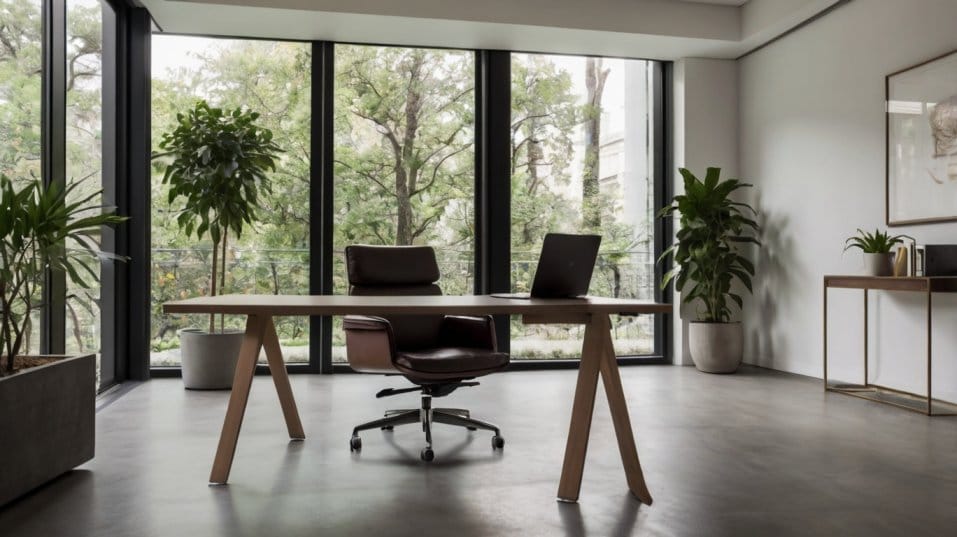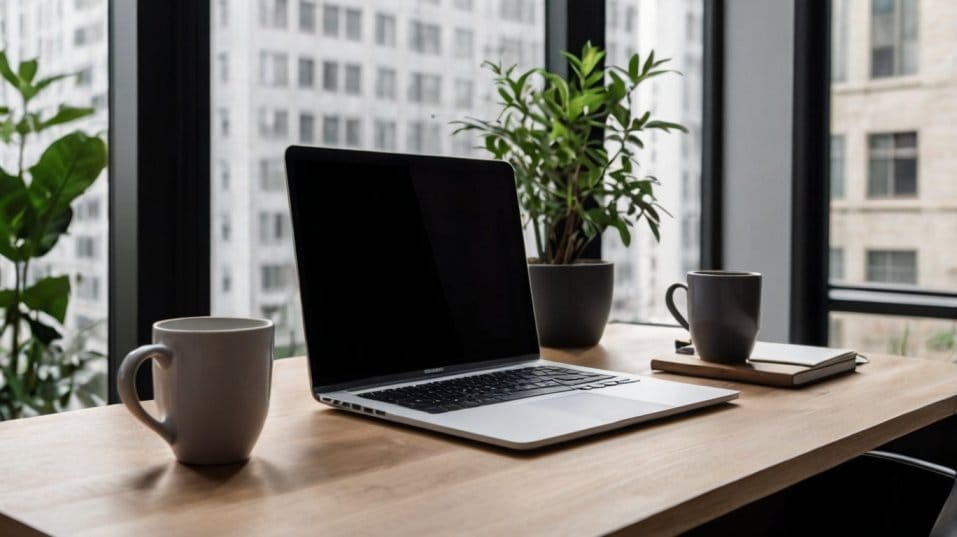Why a Clean and Clutter-Free Office Enhances Cognitive Function
A clutter-free office boosts focus, reduces stress, and enhances cognitive function. Learn how a clean workspace improves productivity.

Is your workspace helping or hindering your productivity? If your desk is cluttered, your brain is working overtime just to filter out distractions.
Studies show that visual chaos drains mental energy, slows decision-making, and increases stress—without you even realizing it.
A clean, organized workspace does more than look good; it sharpens focus, boosts efficiency, and enhances cognitive performance. The state of your desk could be the secret to unlocking better workdays, clearer thinking, and greater success.
Clutter Overloads the Brain
Your brain is wired to seek order. When your environment is messy, your mind expends energy sorting through visual distractions.
Research from Princeton University shows that clutter competes for attention, making it harder to process information and stay engaged.
Instead of focusing on the task at hand, your brain gets stuck filtering out the excess, leaving less mental energy for problem-solving and creativity.
The impact of this is subtle but cumulative—by the end of the day, you're mentally drained, not from productive work, but from the background noise your brain had to process.
The Cognitive Load of Clutter
The effects extend beyond focus. Neuroscientists have linked cluttered spaces to increased cognitive load, meaning your brain has to work harder just to maintain baseline productivity.
Over time, this heightened mental strain contributes to burnout, reducing your ability to think critically, innovate, or engage in deep work.

The Mental Cost of Decision Fatigue
Every object in your line of sight demands a tiny bit of processing power. Over time, this chips away at your ability to make sound decisions.
The Journal of Neuroscience reports that excess stimuli overload working memory, slowing cognitive processing. A clear workspace reduces mental friction, making it easier to prioritize tasks, stay focused, and think strategically.
Clutter and Decision Fatigue
The more decisions you make, the more mentally exhausted you become. This is known as decision fatigue—a phenomenon where the quality of choices deteriorates as the day progresses.
Clutter accelerates this process by constantly presenting micro-decisions: Where did I put that file? Should I move this stack of papers?
Is this note important? Eliminating unnecessary items from your workspace conserves cognitive energy for more meaningful tasks.
Stress Reduction Through Organization
A chaotic workspace isn’t just frustrating—it elevates stress. Research from UCLA found that people in cluttered environments produce more cortisol, the stress hormone linked to anxiety and fatigue.
The study found that individuals with high household clutter had consistently higher stress levels throughout the day, and the same principle applies to workspaces.
Organization and Mental Well-Being
An organized desk creates a sense of control, which directly impacts mental well-being. When your environment is tidy, your brain perceives stability, leading to a calmer state of mind.
Organization also creates a positive feedback loop—when you feel in control of your surroundings, your confidence and motivation increase, making it easier to maintain productivity and focus.
Productivity and Creativity Thrive in Clean Spaces
A minimalist setup isn’t just about aesthetics; it optimizes brain function. Harvard Business Review highlights that employees in clean workspaces experience higher engagement and produce better-quality work.
Without visual chaos, your brain transitions into deep work faster, unlocking productivity and innovative thinking.
The Link Between Minimalism and Creativity
Creativity thrives on a balance of structure and freedom. A clutter-free environment encourages expansive thinking because your mind isn’t preoccupied with disorder.
When mental energy isn’t wasted on processing distractions, it’s freed up for brainstorming, problem-solving, and innovative thought.
Some of the world’s most successful professionals—Steve Jobs, Marie Kondo, and even Albert Einstein—advocated for minimalist workspaces as a way to cultivate mental clarity and creativity.
A Clear Desk Leads to Better Sleep
Your work environment follows you home—especially when it's messy. The Sleep Journal found that people surrounded by clutter struggle to unwind and experience lower sleep quality.
When your brain is overstimulated throughout the day, it remains in a heightened state of alertness, making it harder to transition into restful sleep.
The Power of an Evening Reset Routine
An evening reset routine—taking five minutes to tidy up before leaving work—can have profound benefits.
Not only does it create a fresh start for the next day, but it also signals to your brain that the workday is complete, allowing you to disconnect more effectively.
When your desk is clear, your mind follows suit, making it easier to fall asleep and wake up rejuvenated.
The Connection Between Clutter and Professional Image
Beyond personal productivity, your workspace is a reflection of your professionalism.
Whether you work in an office or remotely, colleagues and clients form impressions based on your environment.
A cluttered desk can subtly signal disorganization, while a clean workspace conveys efficiency, discipline, and attention to detail.
Virtual Meetings and Workspace Perception
In virtual meetings, a tidy background enhances your credibility. If your workspace is visible on camera, ensuring it's clean can reinforce a polished and competent image.
Even for personal motivation, a well-maintained workspace fosters a mindset of excellence and ambition.
Simple Ways to Maintain a Clean Workspace
A clutter-free desk doesn’t happen by accident—it requires small, consistent habits. The good news? Maintaining an organized workspace doesn’t have to be overwhelming.
By making intentional choices about what stays and what goes, you can create an environment that supports focus and efficiency.
- Declutter with intention. If it’s not essential, remove it. Keep only what actively contributes to your productivity.
- Assign a place for everything. Items should have designated spots to prevent build-up and create order.
- Digitize when possible. Reduce paper clutter by going digital. Cloud storage and productivity apps can streamline organization.
- End the day with a reset. Spend five minutes clearing your space to set yourself up for success tomorrow. Small daily actions prevent large messes from forming.
- Adopt a minimalist mindset. Instead of focusing on what to remove, shift your mindset to only keeping what adds value.
Final Thoughts
Your environment shapes your performance. A cluttered desk fuels distraction, stress, and sluggish thinking. A clean space? It sharpens focus, boosts productivity, and promotes mental clarity.
A few small, intentional habits—like decluttering daily and organizing your workspace—can have a profound impact on cognitive function and professional success.
Start now—look around, remove one unnecessary item, and take control of your workspace and your mind.




